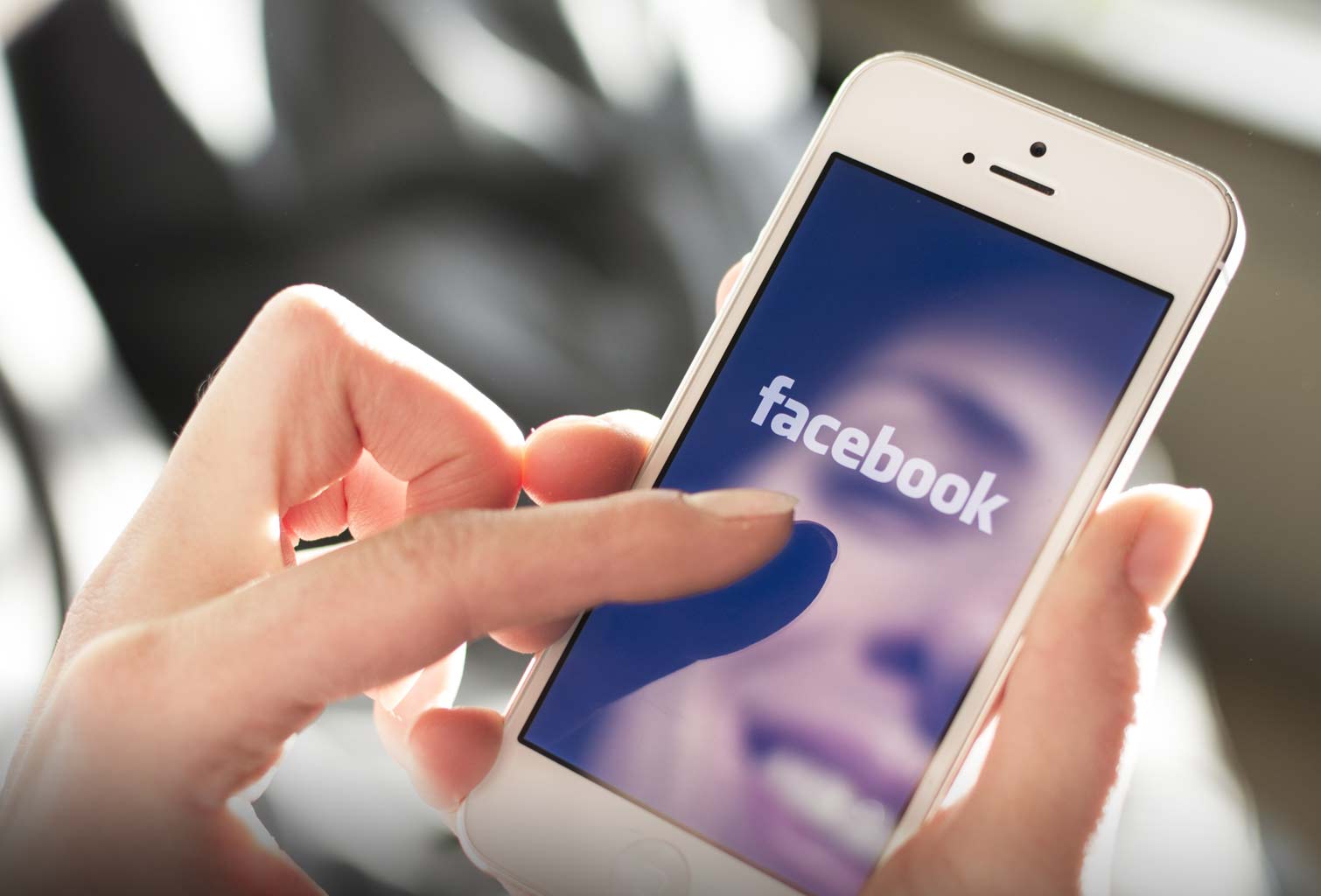Why I Stopped Using Facebook, And You Should Too
By retaining ties to a board member who's funding lawsuits against news sites, Facebook has shown that its supposed support for the free exchange of ideas is empty talk.
Here at Tom’s Guide our expert editors are committed to bringing you the best news, reviews and guides to help you stay informed and ahead of the curve!
You are now subscribed
Your newsletter sign-up was successful
Want to add more newsletters?

Daily (Mon-Sun)
Tom's Guide Daily
Sign up to get the latest updates on all of your favorite content! From cutting-edge tech news and the hottest streaming buzz to unbeatable deals on the best products and in-depth reviews, we’ve got you covered.

Weekly on Thursday
Tom's AI Guide
Be AI savvy with your weekly newsletter summing up all the biggest AI news you need to know. Plus, analysis from our AI editor and tips on how to use the latest AI tools!

Weekly on Friday
Tom's iGuide
Unlock the vast world of Apple news straight to your inbox. With coverage on everything from exciting product launches to essential software updates, this is your go-to source for the latest updates on all the best Apple content.

Weekly on Monday
Tom's Streaming Guide
Our weekly newsletter is expertly crafted to immerse you in the world of streaming. Stay updated on the latest releases and our top recommendations across your favorite streaming platforms.
Join the club
Get full access to premium articles, exclusive features and a growing list of member rewards.
Ask anyone in a key role at Facebook what they view as the social networking service's mission, and you're bound to eventually hear some lofty words about the free exchange of ideas. "Facebook stands for giving everyone a voice," CEO Mark Zuckerberg said when the social network recently found itself in hot water over allegations it had been monkeying with its algorithm to downplay conservative-learning news. "We believe the world is better when people from different backgrounds and with different ideas all have the power to share their thoughts and experiences."

That's some pretty noble talk about freedom of expression. It is also, unfortunately, nothing but talk, as Facebook proved this week when it continued to embrace a board member who's devoted a chunk of the money he's made off investing in the social network and other tech ventures toward suppressing the kind of free exchange of ideas Zuckerberg and his fellow executives feign support for.
That would be Peter Thiel, an early backer of Facebook who was re-elected to his seat on Facebook's board of directors this week without a peep of dissent. You would have figured some objections might have been in order since Thiel's extracurricular activities as of late have included anonymously bankrolling lawsuits aimed at media outlets who've displeased him.
To give Thiel credit, he's proven to be as successful at surreptitiously exercising vendettas as he is at funding tech ventures. Thiel has been funding lawsuits against online news site Gawker — how many the otherwise press-shy billionaire won't say — because he objects to the way Gawker goes about its business. Thiel told the New York Times that his antipathy toward Gawker stems from allegations that the site has "ruined people’s lives for no reason" — a 2007 Gawker article outed Thiel and the news site was particularly unsparing in its coverage of the lavish wedding of Thiel chum Sean Parker — though it's hard to shake the feeling that the real source of Thiel's beef is that Gawker and its various Web properties failed to cover tech companies with what the billionaire considered to be sufficient deference.
MORE: 25 Worst Gadget Flops of All Time
Whatever the reason, Thiel scored a hit in the form of a lawsuit he bankrolled on behalf of former wrestler Hulk Hogan, who successfully sued Gawker for publishing a sex tape involving him. A Florida jury awarded Hogan $140 million, with the judgment prompting Gawker to file for bankruptcy. (Gawker is currently appealing the ruling, even as it seeks a new buyer.)
Judging by the reaction to Hogan's legal victory (and, by proxy, Thiel's), Thiel could hardly have picked a less sympathetic target to exact his revenge. Silicon Valley entrepreneurs have been particularly giddy about the longtime bane of their existence getting some legal comeuppance.
I have no particular ties to Gawker other than as an occasional competitor and frequent reader. I could probably rattle off a list of stories published on its sites that I think should never seen the light of day just as I could rattle of stories that I wish I would have had the wherewithal to pursue. Even if I thought nearly every story ever published on a Gawker site was without any journalistic merit, I'd still be appalled by how Thiel is exploiting his wealth and privilege to silence a news organization, on the sly and from the shadows. Apart from the Hogan case, Thiel hasn't confirmed the lawsuits he's actually funding, and the lawyer in that case continues to threaten legal action against Gawker, most recently over Donald Trump's hair. Thiel, notably, will be a Trump delegate at next month's GOP convention.
Which brings us back to Facebook, and its guilt by association by continuing to keep Peter Thiel on its board of directors. Yes, the way Facebook is structured, it's Zuckerburg himself and not the board of directors who makes the decisions for the company. And Zuckerburg's decision to retain the counsel of someone who's made it clear he has little use for a free and independent press speaks volumes about his real values, which have precious little to do with giving everyone a voice.
That's especially troubling as Facebook steps up its efforts to be your one-stop shop for news and information. As the social networking site has become more of a primary news source for its users, it's launched programs such as Instant Articles where publishers can deliver articles directly to Facebook's newsfeed. To put it another way, Facebook wants you to get the bulk of your news from its service at the same time one of its board members is using his financial pull to influence the kind of news that's out there.
Since news broke of Thiel's involvement in suing news sites that fail to promote his particular world view, I've become less enthused about using Facebook. My last status update was back in late May and, apart from posting a link to this article, I don't expect that to change now that Zuckerberg and Co. have signaled that they're A-OK with talking up support for the free exchange of ideas while a high-profile board member promotes exactly the opposite.
Facebook's silence over Peter Thiel's assault on the free press speaks volumes about what it values as a company. If you appreciate freedom of expression — even if that expression isn't always polite — you should let your silence on Facebook do likewise.
- How to Dump Trump, Hillary Off of Your Facebook
- A Snapchat Guide for Parents
- How to Report Bullying and Abuse on Facebook
Get instant access to breaking news, the hottest reviews, great deals and helpful tips.
Philip Michaels is a Managing Editor at Tom's Guide. He's been covering personal technology since 1999 and was in the building when Steve Jobs showed off the iPhone for the first time. He's been evaluating smartphones since that first iPhone debuted in 2007, and he's been following phone carriers and smartphone plans since 2015. He has strong opinions about Apple, the Oakland Athletics, old movies and proper butchery techniques. Follow him at @PhilipMichaels.
-
Nelson Kerr Thiel financed a lawsuit by a guy that Gawker unlawfully screwed over, IF Gawker had stayed with the law Thiel could have done them no harm. Hogan sued because Gawker crossed the line and the Court agreed.Reply
 Club Benefits
Club Benefits











